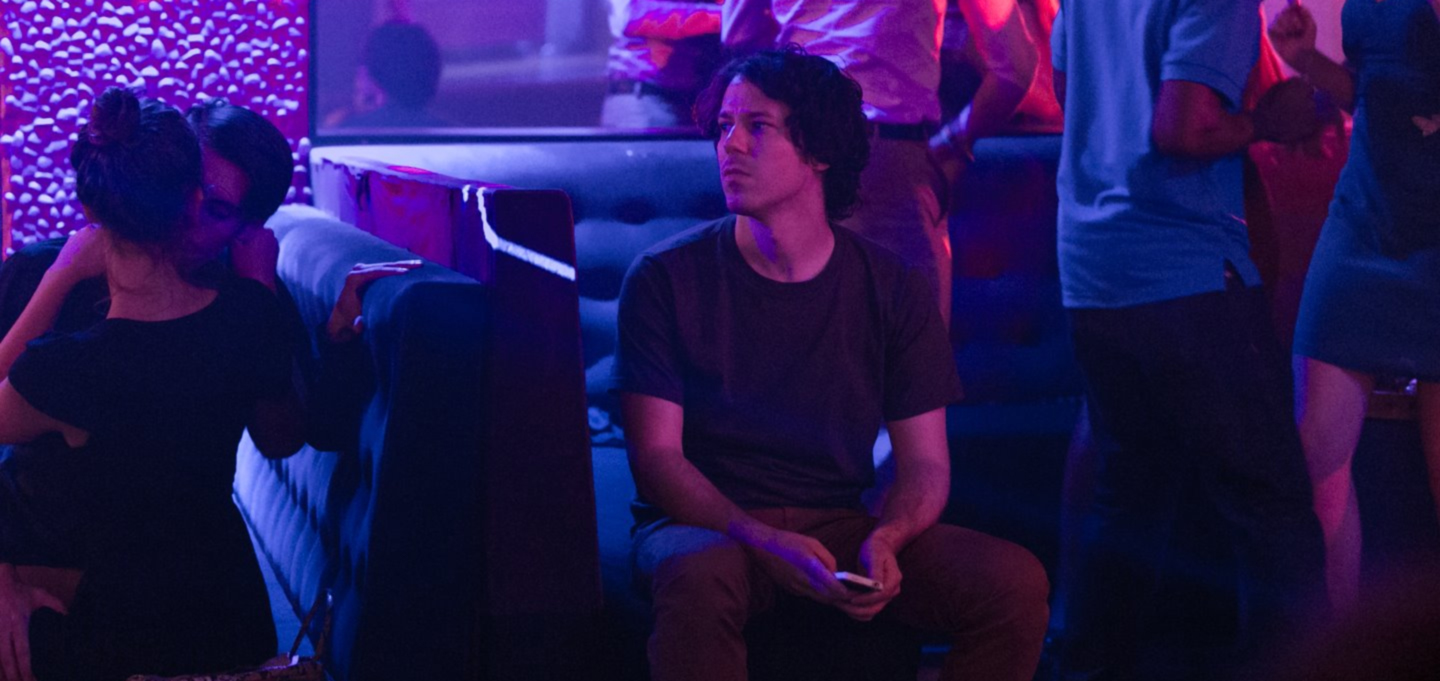
Zachary Wigon’s debut feature The Heart Machine is an understated, mumblecore-influenced analysis of the link between relationships and technology in contemporary society. Centring on a long-distance relationship mediated by Skype (that might not be so long-distance after all), Wigon drops us in the middle of a partnership complicated by an absence of physical interaction and a lack of trust. This film really took me by surprise; I’ve been a fan of Kate Lyn Sheil’s work for a while but have always been cautious when approaching films that attempt to be unconventional, realistic, modern portrayals of average life, namely because they are often conventional and unrealistic, and portray extreme versions of normal events. Thankfully, The Heart Machine doesn’t fall into that trap. It is an authentic and realistic look at modern, digitally augmented relationships, and is a definite highlight of the US stream of the Possible Worlds program.
The film follows Cody (John Gallagher Jr.), a young-adult from New York who has developed an online relationship with fellow New-Yorker Virginia (Kate Lyn Sheil). Although Virginia is apparently on exchange in Germany Cody doubts the legitimacy of her statements and begins to obsessionally try to track her down so she will be forced to admit that she has been lying to him, while attempting to not clue her into the fact that he knows she’s been misleading him.
The backbone of the feature is definitely Wigon’s intriguing discourse on technology, particularly the way in which emergent technologies have modified interpersonal relationships. Whether it be his look at the way our communication through online services strays from our physical face-to-face interaction (awkward conversations highlighted by ping delays, immature joking and teasing etc.), or his demonstration that consumer technology allows us to uncover the lies and indiscretions of others in a way never previously possible (the cleaning of audio sources for hidden information, the ability to cross-reference different online services to uncover obscured aspects of others identities). While it’s not a unique concept, the way in which it’s dealt with in The Heart Machine differs from those that I’ve seen before, and somehow feels more gritty and real.
In fact, the whole film feels kind of real and raw, even if the premise looks a little farfetched on paper. Whether it be through it’s frank representations of online and offline sex, restrained, stumble-y dialogue throughout, or in some of the hardest to watch, most cringe-worthy scenes that I’ve seen in recent memory (when Cody’s sleuthing goes a little overboard), The Heart Machine never had me questioning its legitimacy. While I took great joy in the fact that the film leaves you questioning certain aspects of its leads’ back stories after its conclusion – What drew Cody to the world of online dating since he obviously has no trouble picking up offline? What drives Virginia’s addiction to technology driven relationships; The lack of strings? The ability to form your own narrative? – pretty much all the different aspects of the production process that can further enhance a feature’s quality seem to work in the film’s favour. It’s subtle and nuanced score, and the fantastic, refreshing non-shaky digital cinematography are wonderful but it’s greatest assets are the performances, particularly from Kate Lyn Sheil who demonstrates a fantastic level of control over her body, even down to facial micro movements that convey more information than lines upon lines of dialogue ever could. Without it’s quality performances The Heart Machine would have had a much more difficult time selling its (potentially hokey) content.
Overall, The Heart Machine managed to both warm and cool my heart, consistently switch and morph my preconceived sympathies and allegiances, take cardboard cut-outs of cliched characters and transform them into real people by the end of their screen-time. It’s not without its issues (it manages to drag occasionally despite its short runtime, and some scenes just don’t work as well as they should have), but it is definitely an achievement for first-time feature director Wigon and another fantastic addition to Kate Lyn Sheil’s already great back-catalog including the Comedy, Sun Don’t Shine. and Silver Bullets. Track this one down, it won’t be for everyone but it’s exciting to see a decidedly modern tale presented so proficiently.
